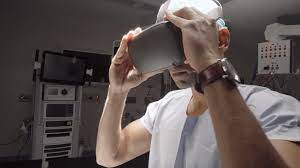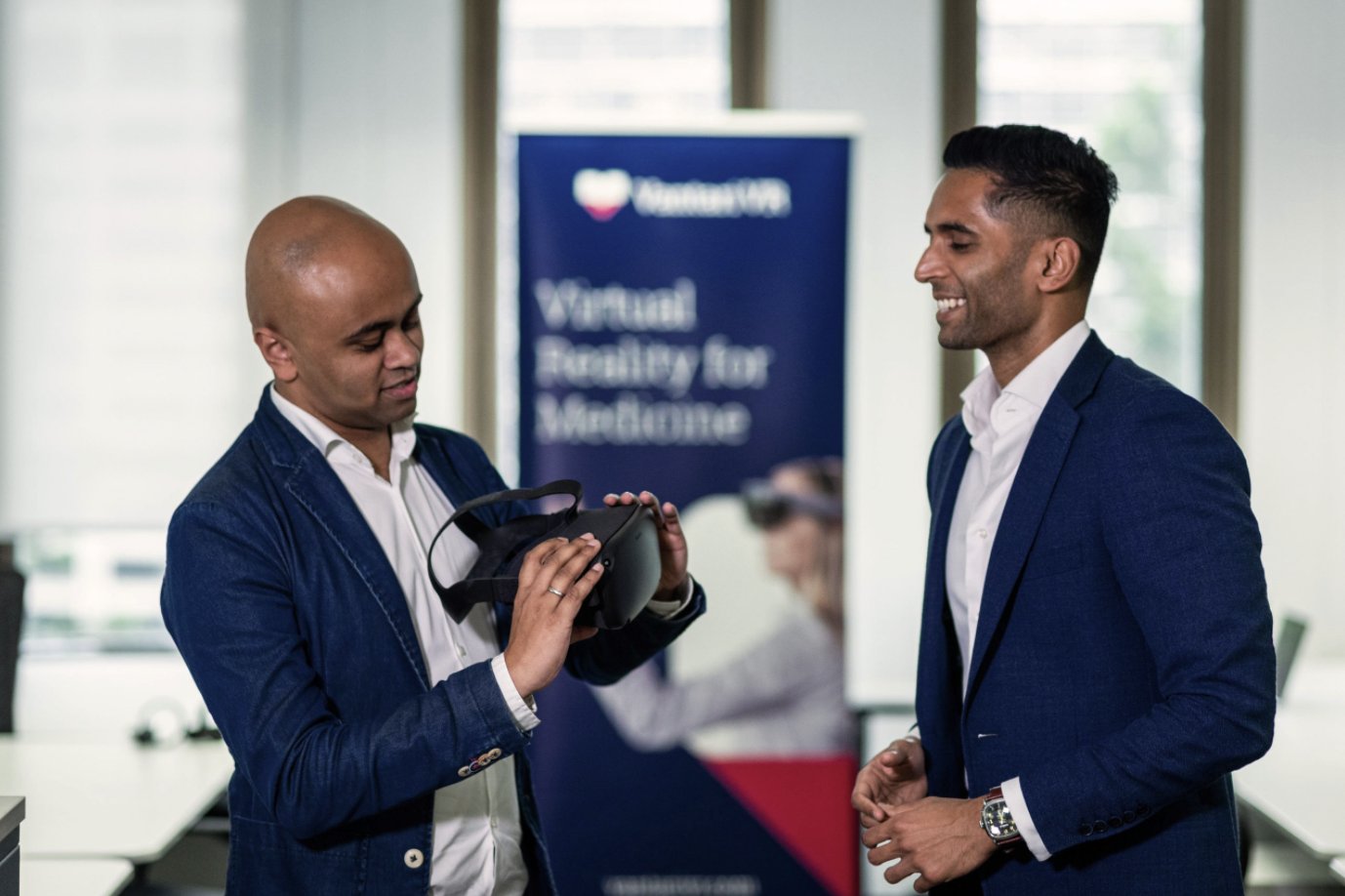Vantari VR reduces medical error by 40pc – Wollongong University research
MEDICAL VIRTUAL REALITY company, Vantari VR, has been found to help reduce medical errors by an astounding 40 percent.
In tests conducted in partnership with the University of Wollongong (UOW), researchers also found Vantari VR training software had helped student clinicians to improve performance by 32 percent and adherence to safety and hygiene by 39 percent.
Through its unique ‘flight-simulator’-style technology, Vantari delivers medical training via a VR headset and laptop, allowing clinicians to perform and perfect clinical procedures.
Vantari VR’s platform delivers procedural training to doctors, nurses and medical students, with a mission to eliminate medical error, and provide standardisation in the delivery of training across the board.
The partnership with UOW, which set out to test and validate Vantari VR’s solution, observed 25 students using the VR software, against a control group of 19 students not receiving the VR training. The results highlighted the potential for significantly improved patient outcomes as well as cost savings for hospitals. 
An expert in using technologies like VR to overcome barriers of the real world, Shiva Pedram from the University of Wollongong’s SMART Infrastructure Facility said the university was “thrilled to see virtual reality used in such a meaningful way” with measurable impact aligned to the motor skills theory of learning.
“Currently, students are using mannequins to do practice procedures; this comes with a number of logistical limitations and it’s very centralised,” Dr Pedram said.
“Vantari is now offering students decentralised training, meaning students can receive thorough training regardless of time or location. The most important thing is that students can take their time with these procedures, they can reflect, revisit and repeat until they reach a point where they feel comfortable and confident to perform the same, or similar, procedures in real life.”
VR LEARNING ENVIRONMENT IS SAFER
The partnership between Vantari and UOW allowed medical students to practise procedures in a safe VR environment, commencing with arterial blood gas (ABG) collection. A fundamental procedure done daily in hospitals across Australia and globally, it remains an essential skill for all medical students, doctors and in some contexts, other healthcare practitioners such as nurses.
The modules cover core competencies as well as more complex critical care procedures, and users learn best practice by following steps in VR which are recommended by college guidelines. These provide a foundation to use Vantari’s platform as both a digital logbook and, in the future, an accreditation platform.
As the pandemic continues to cause issues in Australia, the need to future-proof education and training has never been more important, Dr Pedram said. The commercial pilot study was ably supported by the UOW research and clinical teams and the Graduate School of Medicine. Researchers clinically validated the software and are set to publish the full research paper within weeks. 
Research shows that 28-40 percent of novice residents were not confident in performing a major surgical procedure. The difference between novices and experts is generally in their perception, decision making, actions and attention. With VR allowing the provision of continuous training to complement real-world experience, this gap can be reduced; the results from the recent research piece offer a testament to the fantastic outcomes available.
LIVING UP TO ITS VIRTUAL PROMISE
Vantari VR co-founder and co-CEO Nishanth Krishnananthan said the results from the research program provided fantastic affirmation that the software was delivering on its objectives.
“The results have highlighted just how much time and money the training software is set to save hospitals and universities, and we are really excited by the improved confidence in the medical and healthcare industries that we can offer to patients, as they can expect better outcomes,” he said.
The Vantari ABG module is hosted on Vantari Connect – the cloud-hosted Vantari platform which hosts a library of medical procedures for training. Observed students were immersed in a medical environment with a virtual patient, virtual instruments and a step-by-step guide of written and narrated instructions on how to perform the procedure.
Vantari will utilise the ABG VR trainer to unlock a number of foundational procedures with a view to integrating more broadly into the medical curriculum both at UOW and nationally, with potential to extend the training beyond practitioners.
“As technology like this becomes more affordable and accessible, we will be able to provide more experiences,” Dr Shiva said.
“Ideally, the VR training will extend beyond students and clinicians and we will be able to look at how we can expose the family, friends and carers of the patient to the pain or challenges they’re experiencing, and that awareness and empathy will help with the support process. The reach of the educational benefits is limitless.”
Looking ahead, Vantari VR is aiming to secure funding as part of its current capital raise. The raise comes as Vantari VR secured the MVP Grant in 2018, the AC Grant in 2019, and more recently, the Epic Games MegaGrant last year.
Vantari VR was launched in 2017 and is now operating in four hospitals across Australia. Vantari VR’s stated aim is to help produce the best doctors and the best medical outcomes by reducing medical error and in turn, saving patients’ lives.
www.vantarivr.com
ends

 How to resolve AdBlock issue?
How to resolve AdBlock issue?